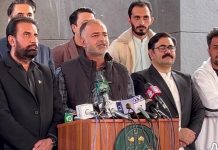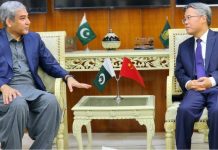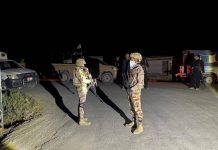The Afghan Taliban claimed in a recent media statement that they had killed Maulvi Mahdi, a 33-year-old Hazara emissary and a local intelligence chief, for “defection.” The Taliban said that Mahdi was trying to escape to Iran after deserting the group when he was confronted and killed by the Taliban forces. With the death of the recently-appointed Hazara emissary, the question has once again reared its head – are the Taliban actually “reformed and inclusive” as they claim to be?
The Taliban defence ministry has not given any proof of whether Mahdi is actually dead or not. Local news sites claim that Mahdi had escaped to Iran where he was apprehended by the Iranian border forces and handed over to the Taliban. They claim that Mahdi is alive and in Taliban custody – he is being interrogated in the Balkhab mountains where he will be hanged when the investigation is over.
Local sources say the Taliban forces stationed between Islam Qila, a border town in western Herat province, and Taybad, a county in Razavi Khorasan in Iran, informed the defence ministry, the intelligence agency and the home ministry that Mahdi was killed. Some Taliban commanders also said he was arrested and would be shifted to Kabul. Several Taliban leaders claimed on social media that Mahdi is alive and in Taliban custody.
Who is Maulvi Mahdi?
As a military commander, Maulvi Mahdi – who also goes by Mahdi Mujahid – never captured any territory or fought the American and NATO forces in battle. And yet the Taliban considered him a godsend – in November 2021, the Taliban appointed Mahdi as the district governor in his birthplace. They showcased a video of him on their website to glorify his credentials. He was invited to Kabul and housed in an opulent villa, which the Taliban typically reserve for its most senior leaders.
When the Taliban rose to power in the mid-1990s, the hardline Sunni militants captured, massacred and uprooted thousands of ethnic Shiites Hazaras, declaring them infidels. They destroyed the Hazara cultural sites and extended their political and economic marginalization by different Afghan regimes. Faced with violence for decades, tens of thousands of Hazaras fled Afghanistan into the neighbouring Iran and Pakistan where they spend their days as illegal refugees.
Mahdi was 8 years old when the Taliban seized Kabul in 1996. Three years later, the Taliban bombarded his district of Balkhab, forcing him and his family to flee o Iran. Like many Hazaras, they returned to their homes in Afghanistan only after the militants were driven from power after the Sept. 11, 2011, terrorist attacks. Mahdi was in his early 20s when a corrupt Hazara commander allied with the US-backed government seized his family lands. In retaliation, Mahdi and his friends kidnapped the commander’s son. After the district elders intervened, the commander returned the lands and Mahdi released his son.
That night, the commander’s forces surrounded Mahdi’s home, and clashes erupted where Mahdi was injured and hospitalized. He was then jailed for seven years where he interacted with the Taliban inmates, embraced their ideology and became a devout Muslim, studying Quran and praying five times a day. When he returned home, Mahdi preached the Taliban ideology to his fellow Hazaras, speaking against the US-backed government. As his pro-Taliban militia grew, the local pro-government Hazara warlord sought his allegiance, which he turned down. He came under attack by government forces and fled to the neighbouring Samangan province.
As the Taliban swept to power in August 2021, researchers and analysts focusing on Afghanistan said that how the Taliban treated Hazaras in their new regime will serve as an essential barometer to gauge their claim that they have changed and deserve international recognition and support. Mahdi’s elevation was a baby step in that direction, based on strategic calculations to attract local support in minority communities and create a semblance of diversity in the Taliban’s ranks. The Taliban dispatched Mahdi to Hazara areas as an emissary and set up informal Shiite courts for the first time to attract more Hazaras.
Yet Mahdi was also a stark reminder of the limits of the Taliban’s professed intentions. In the Taliban’s interim government, none of the 33 key members was Hazaras, though the group later expanded the body to include one Hazara as deputy health minister. The Taliban also evicted hundreds of Hazara families from their homes and farms, according to Human Rights Watch. They also met with the families of suicide bombers to hand them cash and promises of land. Many of them had killed hundreds of Hazaras across Afghanistan.
Mahdi held a minor post in the Taliban regime: he was the intelligence chief in Bamian province, a mostly Hazara region. He was young, not well educated and not a national figure that could appeal to the greater Hazara community of Afghanistan – he was more like a foil to prevent a full-fledged Hazara uprising, rather than a serious agent of reconciliation.
There were reports that Maulvi Mahdi and his dozens of followers left the Taliban when a serious rift grew between the two groups. They resorted to the mountains and said the Taliban ignored the rights of Afghanistan’s Shiite Hazara community. Mahdi’s photos were circulated on social media where he could be seen meeting with Tahir Zahir, a former Afghan minister and the governor of Bamian.




























